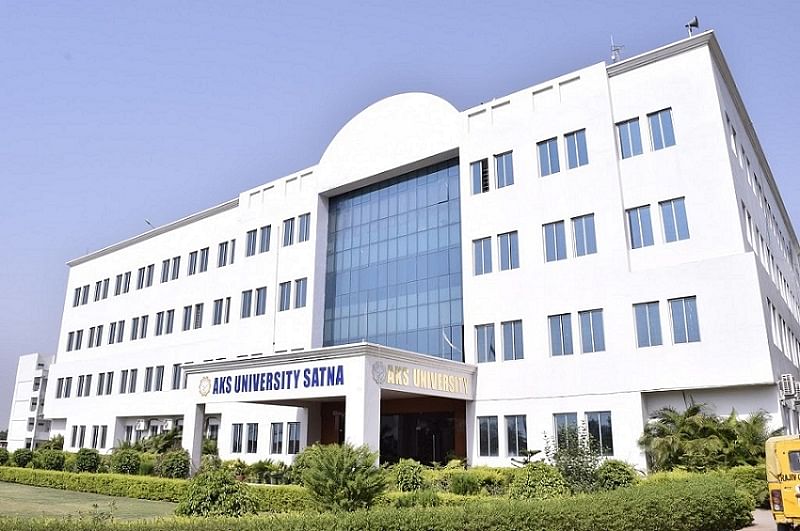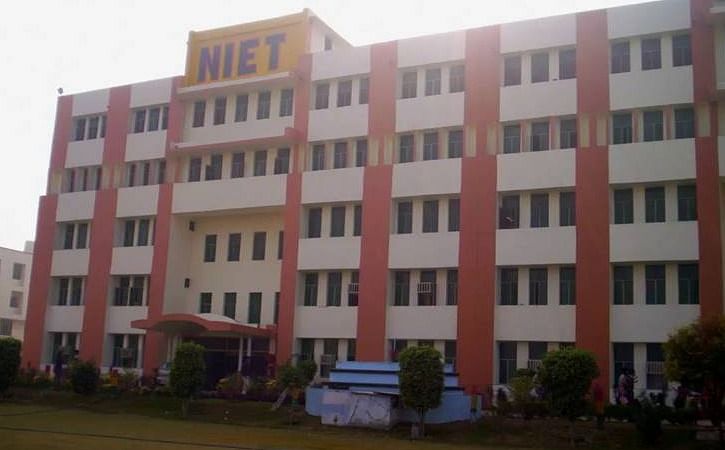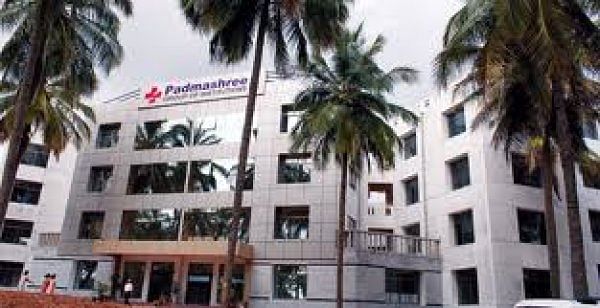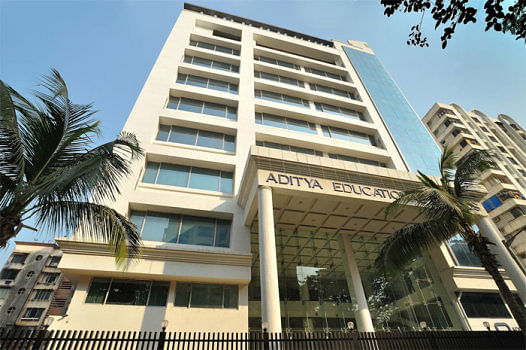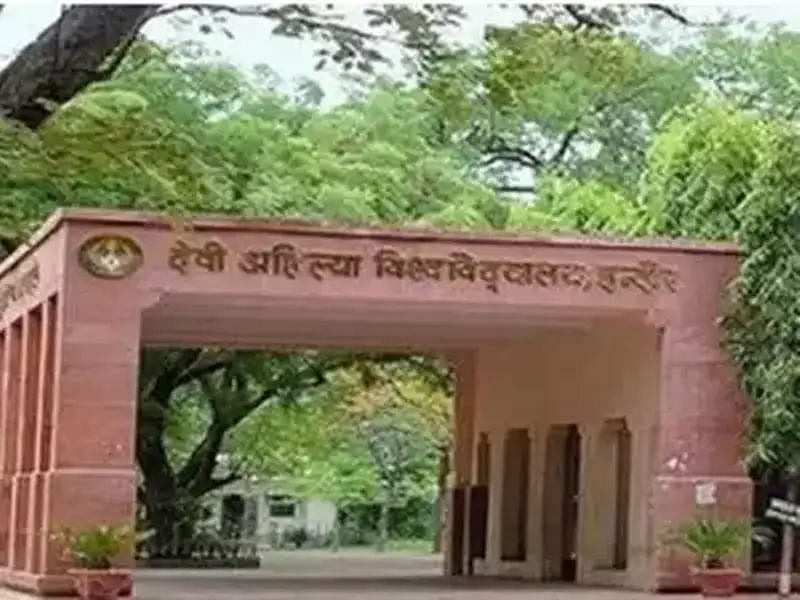MBA in Rural Development: Course Details, Eligibility, Admission, Fees
MBA in Rural Development is a two year postgraduate degree that aims to provide extensive knowledge of managerial principles, planning, organizing, and supervision of cooperatives and other related agricultural organizations to efficiently implement business practices. MBA in Rural Development jobs after graduation include sales officer, business development manager, Rural development officer, etc.
Table of Contents
- About MBA in Rural Development
- MBA in Rural Development Eligibility Criteria
- Who Should Pursue MBA in Rural Development Course?
- How To Get Admission for MBA in Rural Development?
- Types of MBA in Rural Development Courses
- Popular Entrance Exams for MBA in Rural Development
- Top MBA in Rural Management Colleges in India
- Study MBA in Rural Development Abroad
- Fee Structure for MBA in Rural Development
- Syllabus and Subjects for MBA in Rural Development
- Why Choose MBA in Rural Development Course?
- MBA in Rural Development Course Comparison
- Preparation Tips for MBA in Rural Development Course
- Scope of MBA in Rural Development for Higher Education
- Salary of MBA in Rural Development Graduate
- Career Options After MBA in Rural Development Graduation
- Skills That Make You The Best MBA in Rural Development Graduate
MBA in Rural Development Course Details
| Degree | Masters |
| Full Form | Master of Business Administration in Rural Development |
| Duration | 2 Years |
| Age | There is no upper age limit. |
| Entrance Exam | CAT, XAT, MAT, GMAT, SNAP |
| Subjects Required | BBA or relevant subject |
| Minimum Percentage | 50% |
| Average Fees | ₹1 - 7 LPA |
| Average Salary | INR 3-12 LPA |
| Employment Roles | Sales officer, Vendor development manager, Business development executive, Research officer, National sales development manager, etc. |
About MBA in Rural Development
MBA in Rural Development combines a theoretical and practical understanding of business administration with various specializations. MBA in Rural Development falls under the umbrella of an MBA course that focuses on the modern world and entails the understanding and implementation of managerial, administrative, and innovative, techniques in the rural industry to bring efficiency to business practices. MBA in Rural Development duration is of 2 years.
MBA in Rural Development syllabus inculdes rural management, developement, entrepreneurship, welfare laws to name a few. MBA in Rural Development job scope includes interacting with numerous international businesses that are interested in the development of the rural sector as well as with numerous government organizations that work to promote rural welfare.
| MBA in Rural Development Admission Procedure | MBA in Rural Development Entrance Exams |
MBA in Rural Development Eligibility Criteria
MBA in Rural Development eligibility includes having graduated with a minimum aggregate of 50% or above or an equivalent CGPA and holding a degree in any field from an accredited institution. In addition to meeting the conventional eligibility requirements, students must pass the common entrance exams. There is no age limit for applying for this course, making it flexible for students with diverse backgrounds to enroll.
Who Should Pursue MBA in Rural Development Course?
Candidates who have a degree from an accredited university may enroll in the MBA in Rural Development program. The best candidates for the field are students who are actively interested in innovative practices for the betterment of the rural sector, research, etc, and who want to advance in the profession.
When To Do an MBA in Rural Development Course?
The course can be pursued after receiving a bachelor's degree; also, having a year of work experience will offer the applicant the necessary industry exposure.
How To Get Admission for MBA in Rural Development?
Candidate willing to get admitted to the MBA in Rural Development program, must perform well on the qualifying exam. A graduate degree and strong exam results are the minimum prerequisites for candidates to be eligible for the MBA in Rural Development.
The candidate must take entrance examinations like the CAT, GMAT, MAT, etc. and achieve a score over the cut-off in order to enroll in the program.
How to Apply?
To start the application process, students must visit the official websites of the colleges they plan to attend. They need to submit all the necessary documents required by the university onb the website's portal.
Selection Process
The selection process can be done either via merit-based or entrance-based methods. Based on their academic performance, having graduated with at least 50% in any field from an accredited institution. Students must take an entrance exam such as the CAT, MAT, GMAT, etc. to be considered for selection.
Following that, applicants are eligible for the next round of admission. The final round would either be GD or PI, depending on the college's method of selection.
Types of MBA in Rural Development Courses
Both full-time and part-time options are available to aspirants for the course. The several MBA in Rural Development course types are detailed below:
Full-Time MBA in Rural Development
The MBA in Rural Development is a two-year postgraduate course divided into four semesters. In this subject, practical exposure is aligned with academic content. Students who choose the full-time learning option are required to participate in regular classroom instruction. The advantage of a full-time course is that students can gain much more exposure and experience and increase their learning curve.
Part-Time MBA in Rural Development
A part-time MBA in Rural Development is a two-year course. Professionals who are currently employed and unable to take time off for full-time study can benefit greatly from the part-time MBA/PGDM program.
Distance MBA in Rural Development
MBA in Rural Development Distance education in India is a two-year postgraduate correspondence program in rural development. For those who cannot attend regular sessions, the distance MBA program is one of the preferred alternatives. A distance MBA in rural development is offered by a number of colleges and universities such as IGNOU, etc.
Popular Entrance Exams for MBA in Rural Development
For admission to the MBA in Rural Development program, several institutes in India have entrance exams. The entrance exams can be divided into three levels: national, state, and college level. Some of the most popular tests for MBA admissions in Rural Development are listed below:
| MBA in Rural Development Entrance Exams | Registration Details |
| CAT | CAT Application Form |
| XAT | XAT Application Form |
| CMAT | CMAT Application Form |
| GMAT | GMAT Application Form |
| MAT | MAT Application Form |
| ATMA | ATMA Application Form |
| NMAT | NMAT Application Form |
A Quick Glance at the MBA in Rural Development Entrance Exams
The admission procedure for an MBA in Rural Development can be conducted on the basis of entrance exams or merit. The following key points are listed to provide a quick overview of the structure of entrance exams:
- The question paper will contain 100 questions divided into three sections.
- The test formats include portions on verbal ability,literary comprehension, data interpretation & logical thinking, and quantitative aptitude.
- The exam will be conducted either offline, online, or on paper with OMR sheets with a duration of 3 hours.
- The syllabus, examination process, and question format may change according to the required demand as per the university.
Top MBA in Rural Management Colleges in India
MBA in Rural Development is an emerging course, and it offers candidates a lot of opportunities to ensure that all business operations are carried out and appropriate compliance is achieved. The following is a list of the top 10 MBA in Rural Development Colleges in India:
|
S.No |
Name of the College |
Average Fees (INR) |
|
1 |
5.7 LPA |
|
|
2 |
5 LPA |
|
|
3 |
12.8 LPA |
|
|
4 |
5 LPA |
|
|
5 |
7.10 LPA |
|
|
6 |
1.92 LPA |
|
|
7 |
98,000 PA |
|
|
8 |
10 LPA |
|
|
9 |
2 LPA |
|
|
10 |
Symbiosis Institute of Development Studies, Pune |
8.5 LPA |
Top MBA in Rural Development Colleges in Delhi
The colleges in Delhi that offer MBA programs in rural Development are listed below:
|
S.No |
Institution |
|
1 |
|
|
2 |
|
|
3 |
|
|
4 |
Jaipuria Institute of Development |
Top MBA in Rural Development Colleges in Pune
Check the table below for the best colleges for MBA in Rural Development in Pune:
|
S.No |
Institution |
|
1 |
|
|
2 |
|
|
3 |
Symbiosis Institute of Business Development |
Top MBA in Rural Development Colleges in Bangalore
The colleges in Bangalore that offer MBA programs in Rural Development are listed below:
|
S.No |
Institution |
|
1 |
|
|
2 |
|
|
3 |
|
|
4 |
Indian Institute of Business Development and Studies |
Top MBA in Rural Development Private Colleges
India has experienced a considerable increase in the number of reputable private universities that provide some of the best programs that offer an MBA in Rural Development. The private colleges that offer MBA programs in rural Development are listed below:
|
S.No |
Institution |
|
1 |
|
|
2 |
|
|
3 |
|
|
4 |
Symbiosis Institute of Development Studies, Pune |
|
5 |
KIIT School of Rural Development, Bhubaneswar |
Top MBA in Rural Development Government Colleges
In India, there are various government colleges that offer an MBA in Rural Development course. The colleges are listed below:
|
S.No |
Institution |
|
1 |
|
|
2 |
|
|
3 |
|
|
4 |
|
|
5 |
Study MBA in Rural Development Abroad
MBA programs are available at colleges across the world for students who want to study abroad and provide good exposure in terms of experiencing diverse cultures, different approaches to learning etc. To be eligible to study MBA Rural Development, a candidate must have a minimum of two years of work experience.
Top MBA in Rural Development Colleges Abroad
Some of the top universities offering MBA programs in rural Development overseas are included in the table below:
|
S.No |
Institution |
Fees |
|
1 |
GBP 25760 |
|
|
2 |
USD 50000 |
|
|
3 |
USD 42000 |
|
|
4 |
USD 19000 |
|
|
5 |
US 55000 |
|
|
6 |
Northeastern University, Canada |
USD 32000 |
|
7 |
Columbia University, USA |
USD 60000 |
Fee Structure for MBA in Rural Development
MBA in Rural Development course fee is not fixed and depends on many factors. Some of the factors that affect the MBA in Rural Development fees include location, faculty, demand, infrastructure, and the facilities available to the students. The average MBA in Rural Development course fee in India is around INR 1- 7 LPA.
|
Sl.No. |
Name of the College |
Total Fee Structure (INR) |
|
1. |
Chandigarh University |
5 LPA |
|
2. |
IIHMR University, Jaipur |
5.7 LPA |
|
3. |
International Development Institute, Delhi |
6.5 LPA |
|
4. |
Symbiosis Institute of Development Studies, Pune |
8.5 LPA |
|
5. |
Xavier School of Rural Development |
9 LPA |
Syllabus and Subjects for MBA in Rural Development
MBA in Rural Development is a two year course that is bifurcated into four semesters. MBA Rural Development Syllabus is designed in a manner that helps students improve their learning curve and excel in their careers. Listed below are some of the subjects that students enrolled in this course study and gain practical exposure to:
- Research Methodology
- Development of NGOs and action research
- Business law
- Agri-Business Concepts
- Watershed Development
Read More: MBA in Rural Development Syllabus and Subjects
Why Choose MBA in Rural Development Course?
Before deciding on any field of study, it is important to understand a few aspects related to it, such as “What is an MBA in Rural Development?", "What is the future scope after an MBA in Rural Development?" Etc. Given below are the brief answers that will help students get a fair idea and understanding of the field.
What is MBA in Rural Development All About?
MBA in Rural Development is one of the emerging courses in India which is divided into four semesters that enhances the understanding of creative and innovative approaches to rural development. The course offers knowledge about various concepts of sales, vendor Development, banking, research, etc. with practical application in the rural sector.
What Does an MBA in Rural Development Graduate Do?
Students who graduate as qualified managers are hired in a variety of roles, where they are expected to perform managerial, administrative, and innovative thinking by specializing in research, sales, purchase, problem-solving skills, etc. to derive solutions in the business process.
National Sales Development Manager: National Sales Development Managers are in charge of developing effectual techniques for advertising and marketing, coordinating with numerous managers of the organization concerning rural development.
Reasons Why MBA in Rural Development Can Fetch You a Rewarding Career?
MBA in Rural Development course is compelling and offers a variety of opportunities in the field. Students can gauge the intrinsic worth of an MBA in a Rural Development course because it offers a wide variety of employment opportunities, from national sales development manager to rural development officer.
- Demand: There has been an increasing demand for new courses as per the new dynamics, and one of the courses is an MBA in rural Development. Students who pursue an MBA in rural Development will have access to a variety of opportunities in prestigious organizations both domestically and overseas.
- Career Growth: Graduates with an MBA in Rural Development can choose from a variety of positions, such as sales officer, research officer, vendor development manager, national sales manager, banking executive, etc. After learning and enhancing rural Development expertise, candidates can excel in their careers.
Read More: MBA in Rural Development Jobs & Scope
MBA in Rural Development Course Comparison
MBA in Rural Development stands for Master of Business Administration in Rural Development and is typically catered to students interested in and inclined toward rural Development. Below is a comparison of the MBA in Rural Development course with other courses:
MBA in Rural Development vs MA in Rural Development
The table below showcases the differences between an MBA in Rural Development and MA in Rural Development:
|
Course |
MBA in Rural Development |
MA Rural Development |
|
Full Form |
Master of Business Administration in Rural Development |
Master of Arts in Rural Development |
|
Stream |
Development |
Arts |
|
Course Duration |
2 years |
2 years |
|
Eligibility |
Graduation |
Graduation |
|
Entrance Exams |
CAT, GMAT, XAT, CMAT, MAT, ATMA |
PU CET, BHU UET, JNUEE, DUET, UPCET |
|
Top Colleges |
IIT Delhi, Christ University, Symbiosis Institute of Business Development |
Univeristy of Mysore, Mumbai University, Tata Institue of Social Sciences |
|
Fees |
INR 1 - 7 LPA |
INR 20,000 - 3 LPA |
Read More: MA in Rural Development
Preparation Tips for MBA in Rural Development Course
When choosing to pursue an MBA in Rural Development, students should take a number of key points into consideration. Students can succeed in their studies and pass the course and exams by using the following list of important study tips:
- Syllabus: The student must fully comprehend the course syllabus. This is the first and most crucial step in the preparation process.
- Exam Pattern: Recognize the exam structure and the types of questions that are frequently asked. There is a very good chance that the students will be given multiple-choice questions. Important topics: Students should focus more on important topics because they are asked about them more frequently. As you read through the chapters, you must keep in mind these sections.
- Practice: Utilize sample exams and test questions from prior years to prepare for the questions
Scope of MBA in Rural Development for Higher Education
MBA in Rural Development scope is vast, where aspirants can pursue higher studies after obtaining the degree. Some of the top courses for higher education in the field of rural Development are as follows:
Salary of MBA in Rural Development Graduate
The MBA in Rural Development salary for the graduates can differ according to the specialization that the aspirants decide to pursue. In addition to experience, geography, and the industry they work in, MBA in Rural Development salaries in India may also be influenced by several other variables.
With an increase in practical exposure and experience, candidates have the potential to move to higher positions and increase their salary slab. The average MBA in Rural Development jobs salary for graduates is around INR 3–12 LPA. [Source: PayScale].
Read More: MBA Rural Development Salary
Career Options After MBA in Rural Development Graduation
For MBA in Rural Development, there are many positions available in various fields. The job roles will change depending on the specialization chosen. Numerous job possibilities with competitive pay packages are available for MBA in rural Development graduates in the following job profiles:
- Business Development Manager
- Sales Officer
- Vendor Development Manager
- Research Officer
- Rural Development Manager
Skills That Make You The Best MBA in Rural Development Graduate
To excel as an MBA graduate in rural Development, various skills need to be inculcated in the ongoing learning environment that will help improve the individual learning curve and boost a practical approach to solving problems.
- Interpersonal skills
- Innovative skills
- Critical and analytical thinking
- Initiative and leadership skills
- Communication skills
- Managerial skills



